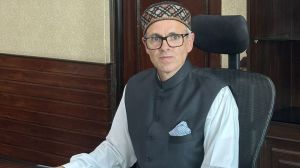2010 a watershed year for NRI,diaspora
Granting voting rights to millions of NRIs and a slew of welfare schemes made 2010 a watershed year for the diaspora.
Granting voting rights to millions of NRIs and a slew of welfare schemes,including establishment of distress fund in 42 countries and seeking tax exemption for professionals,made 2010 a watershed year for the diaspora.
Terming the year as “very remarkable” as it witnessed a long-pending demand of NRIs to participate in the country’s democratic process fulfilled,Overseas Indian Affairs Minister Vayalar Ravi said that in the coming year his ministry aims at deepening the two-way engagement which will benefit both the country as well as its population abroad.
Apart from drafting a new bill to replace the current Emigration Act,the ministry also is helping expatriates get tax concession in return of their contribution in social sector in India.
Outlining the tasks ahead,Ravi said engaging the young Indians living abroad with the country’s root and culture will be the top priority of his ministry in the new year,besides streamlining the migration process.
“We want to involve young Indians with the culture and heritage of the country. We have identified it as a major task for the year 2011. We will use various media platforms like TV channels and Bollywood to connect young Indians with their roots,” he said.
The government also launched a novel initiative providing tax exemption to Indians living in the US if they spend on social welfare projects at their native places in India.
Under the ‘India Development Foundation for Overseas Indians’,they will get tax exemption if they want to build schools,primary health centres and other infrastructure in their villages and places of origin in India.
In a novel initiative,government set up a community welfare fund in 42 Indian missions abroad to facilitate extending help to diaspora community in times of difficulty.
The Indian Community Welfare Fund has been set up to offer various assistance,including legal and financial help to distressed Indians. The fund has been made available in all the Gulf countries where a substantial number of Indians are living. An estimated five million workers are currently staying in the Gulf region.
The ministry signed social security pacts with Denmark,Norway and South Korea to exempt Indian professionals working there from paying social security contribution if they make such payments in India. Negotiations for similar agreements several other countries are currently underway.
Attacks on Indians in Australia kept the government occupied since the beginning of the year and it asked Australian authorities to take all possible steps to ensure safety of its citizens in that country.
Both the governments set up a joint working group with a view to consider regulation of employment agents and organise pre-departure orientation programme for the students.
The major highlight of the year was the government fulfilling the long-standing demand of the NRIs to vote and participate in the democratic process of the country.
Addressing Overseas Indian Affairs Ministry’s flagship annual event Pravasi Bhartiya Divas,Prime Minister Manmohan Singh had assured that Indian passport holders living abroad could get voting rights by the time of next Lok Sabha elections in 2014.
“We seek the active involvement of the overseas Indian communities in accelerating the pace of our economic and social development,” Singh had said,trying to reach out to the diaspora at the conclave.
Nearly 1,500 delegates from over 50 countries including top businessmen,economists,entrepreneurs and scientists participated in the three-day event in January which also saw participation of several chief ministers and Union ministers.
The government,in the Monsoon session of Parliament,introduced the Representation of People (Amendment) Bill,2010 which was passed by both Houses,paving the way for NRIs,who have not acquired citizenship of any other country,to vote.
Currently,the name of an NRI gets deleted from the voters’ list if he stays more than six months at a stretch outside the country. The Overseas Indian Affairs and External Affairs ministries are now holding discussions with the Election Commission to finalise modalities for inclusion of names of NRIs into electoral rolls.
One of the major highlight of the event was the first meeting of the Prime Minister’s Global Advisory Council,comprising 20 top global business leaders and economists of Indian origin including Jagdish Bhagwati,steel magnate L N Mittal and Pepsi chief Indra Nooyi.
A plethora of issues ranging from cheating by builders,red tape in approval of investment proposals,bottlenecks in acquiring land,complexities involved in succession and inheritance of properties of NRIs dominated the conclave.
The government also said it will consider allowing NRIs to invest in infrastructure bonds to facilitate greater inflow of funds in infrastructure sector that needs around USD 435 billion investment.
If these bonds come up,they would be the second major initiatives of this type after SBI’ Resurgent India Bonds floated in the late 1990s for raising resources from overseas players for infrastructure sector in India.
Seeking to transform emigration into a simple,transparent and efficient process,the ministry drafted a new bill to replace the existing Emigration Act,1983. The draft bill was sent to various ministries including Law and Home for their comments and once the process is completed,it will be taken up by the Cabinet for consideration.
Under the new law,an Immigration Authority would be set up to oversee all the aspects related to movement of workers,mainly to Gulf countries and Malaysia.
In view of the complaints about harassment received from workers abroad,the ministry also launched a massive audio visual campaign to educate prospective workers going abroad and warning them about the risks of dealing through unauthorised agents.



- 01
- 02
- 03
- 04
- 05




























